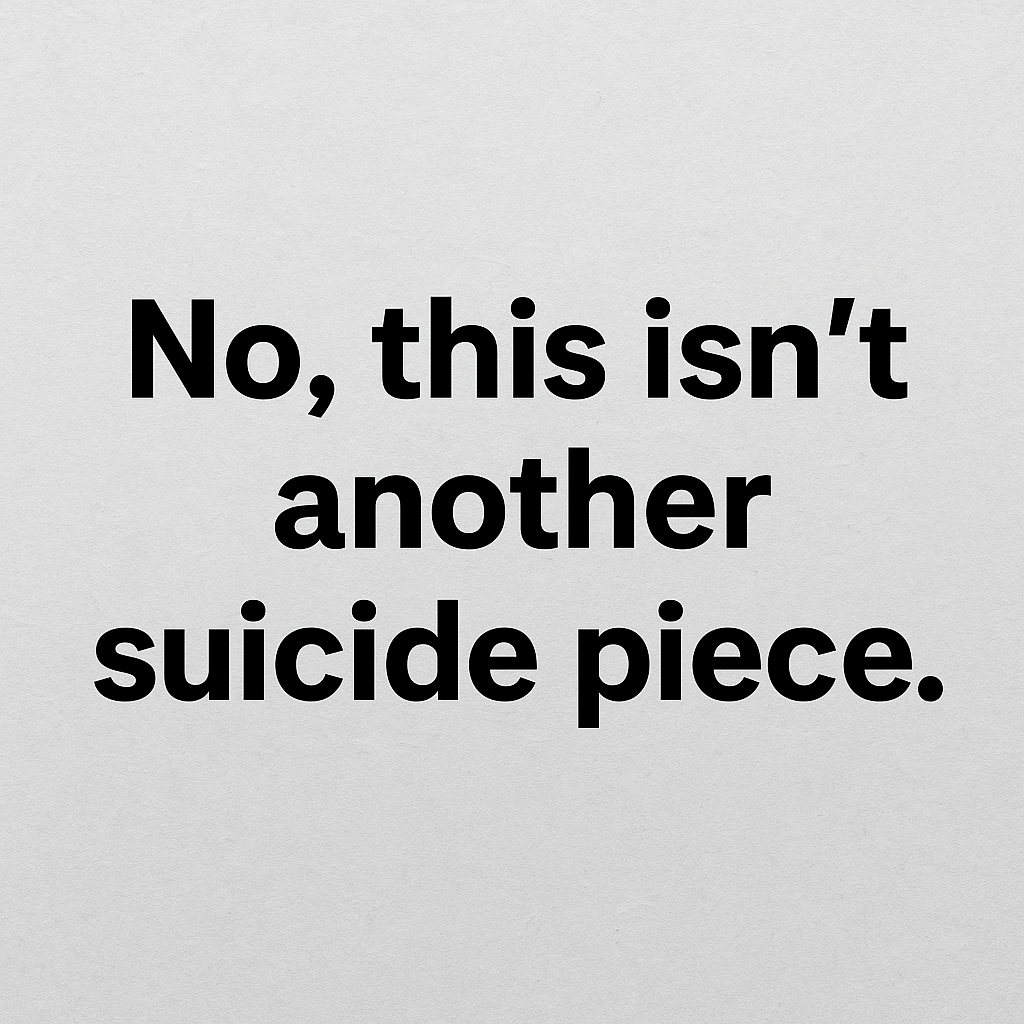We’ve all read those pieces: suicide is tragic, here are the warning signs, here’s how to help. It feels predictable. What we don’t hear enough about is the messy, invisible way our own bodies can drag us into darkness.
I’m talking about hormones.
Nadine had just given birth to her first child. Everyone around her said, “This should be the happiest time of your life.” But instead of joy, she felt a crashing emptiness. At night, when the house was quiet, she’d cry and wonder if her baby would be better off without her.
Fast-forward twenty years. Maya was in her late forties when she started snapping at loved ones, struggling to sleep, and feeling like her brain was underwater. She thought she was “losing it.” What she didn’t know was that she was in perimenopause which is a hormonal rollercoaster that can stir anxiety, depression, and in some cases, thoughts of ending it all. Society makes jokes about hot flashes. What it doesn’t mention is how dangerous the silence around midlife struggles can be.
And then there’s the thyroid. You’ve probably never thought twice about it, a small gland sitting quietly in your neck. But when it slows down or speeds up, life can tilt. Fatigue, panic, brain fog, hopelessness are all feelings that can convince someone they’re drowning when really, their body is out of balance.
Why Does This Even Matter?
When someone is fighting suicidal thoughts, we often rush to look at their circumstances like grief, stress, trauma. All valid. But sometimes the battle is also biological. And if we don’t talk about it, people like Nadine and Maya are left believing it’s “all in their head,” instead of realizing it’s also in their body.
Suicide prevention is understanding that hormones, life stages, and tiny glands can play a role in despair. Talking about this openly could mean the difference between someone suffering alone and someone realizing, “Maybe this isn’t just me. Maybe I can get help.”
